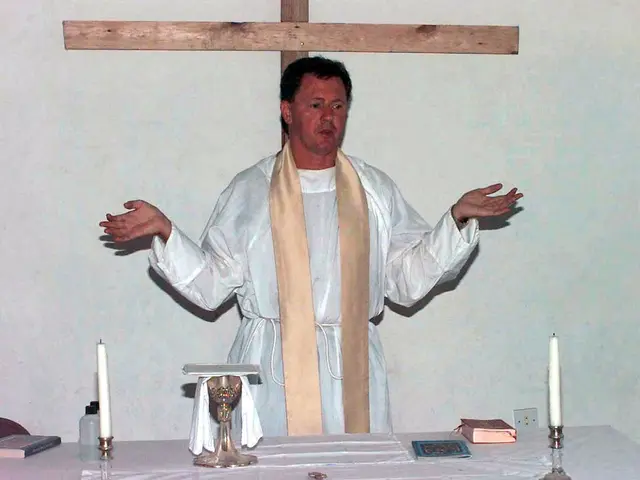Encouraging Local Governance and Decentralized Communication: Strengthening the Democratic Voice in Journalism
Born and bred in the land of the free, American news media brought up the democratic spirit, serving as a pulse point of information, accountability, and discourse. The American news medium isn't limited to high-profile spectacles; instead, it's as diverse as its people, featuring everything from small-town publications to metropolitan TV stations. This diversity, rooted in localism and decentralization, places the foundation for a thriving democracy.
So, what's the big deal about localism? Simply put, it means the news that matters most to you comes from the folks who live and breathe it every day - your neighbors and friends. Camped right in the heart of your community, local news outlets act as the eyes and ears, providing you with the lowdown on local government, issues, and events. It's like they make the town gossips seem like amateurs!
That said, decentralization helps keep power checks in place and curbs the rise of state-controlled media. A decentralized media landscape means a self-drive towards truth and fairness, as everyone competes to offer the real deal. So when it's time for politics, having multiple options ensures the populace can make educated choices. Just like a buffet, but for your news - yum!
Of course, our media landscape isn't without its pitfalls. The digital age has brought about change like wildfire, shaking things up and sometimes leaving behind casualties. Some local newspapers have struggled to keep up, leading to a decline in circulation. In some cases, the narrative gets congested as media conglomerates buy out various local outlets, threatening the diversity of voices. Add the impact of social media into the mix, with its potential for misinformation and echo chambers, and it's no wonder folks are wondering about the future of local news.
But remember those brave souls that dig up the dirt and keep the powers-that-be in check? They're the ones who keep democracy thriving. If it weren't for their tireless dedication and investigative prowess, we'd all be in the dark. Armed with their sword of truth, they help bring about positive change, setting a solid foundation for grassroots democracy.
Take, for example, the Flint water crisis. When the story broke, local journalists uncovered the dangerous levels of lead in the city's water supply, bringing it to national attention. This relentless reporting led to increased government scrutiny and much-needed aid, improving the lives of Flint residents. It's times like these that prove beyond a shadow of a doubt the power of local journalism and its role in the democratic process.
In conclusion, localism and decentralization bolster American democracy by keeping the citizens informed, promoting engagement, and giving voice to a multitude of perspectives. Though challenges like distrust, financial difficulties, and the rise of "news deserts" loom, efforts to overcome these obstacles and preserve the vibrant media landscape are underway. From public funding initiatives and promoting media literacy to embracing community focus and innovative collaborations, it's crucial to support and maintain the foundations of our lively, thriving democracy.
- Decentralization and the vibrant local news scene play a crucial role in upholding democracy, as they offer citizens access to invaluable insights about their local government, community issues, and lifestyle choices, such as sustainable living and home-and-garden suggestions.
- Local journalism, fueled by the democratic spirit, has the power to uncover critical stories and pave the way for positive changes; for instance, the Flint water crisis, where local reporters exposed the danger of lead in local water supplies, eventually leading to increased government scrutiny and aid for the affected residents, exemplifying the vital role of local journalism in the democratic process.







